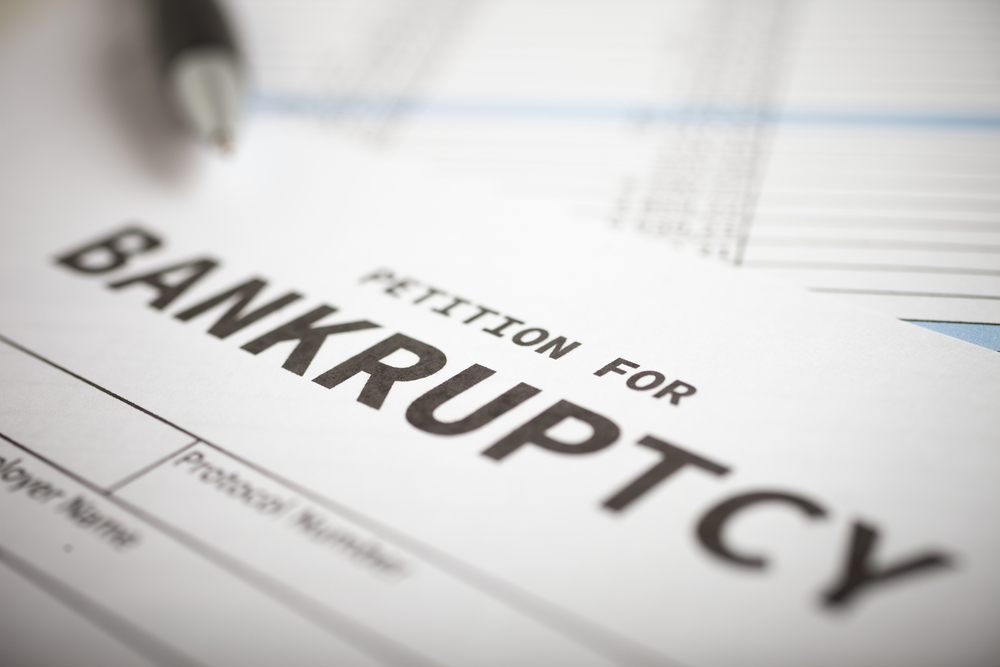Pulling the Weed: Bankruptcy opinion shows debt restructure path for cannabis workers

Bankruptcy courts generally have been a rather hostile forum for debtors employed in the marijuana industry. (Image from Shutterstock)
While 24 states have legalized recreational marijuana use, it remains a criminal activity under the federal Controlled Substances Act, and bankruptcy courts generally have been a rather hostile forum for debtors employed in the marijuana industry.
Against that backdrop, it was not surprising that the U.S. Bankruptcy Appellate Panel for the 1st U.S. Circuit Court of Appeals at Boston recently affirmed the dismissal of a Massachusetts cannabis dispensary employee’s Chapter 13 bankruptcy petition because his plan would have funneled income from illegal activity under federal law to creditors. But in its reasoning, the court may have opened the door for future debtors employed in the industry under certain conditions.
The appellate panel noted that the nature of the debtor’s employment by itself does not make the debtor ineligible to file a Chapter 13 petition in good faith. If a cannabis dispensary employee has funds from another source unrelated to marijuana activities, that money could be used, the panel wrote.
“The problem is not everyone is earning money from somewhere else,” says Henry J. Sommer, president of the National Consumer Bankruptcy Rights Center.
 “We wanted to shine a spotlight on the fact that over 22,000 Massachusetts cannabis industry employees and almost half a million nationwide had no assurances of being able to obtain debt relief via the bankruptcy courts,” says Dmitry Lev, a lawyer for Scott H. Blumsack, the employee who brought Blumsack v. Harrington.
“We wanted to shine a spotlight on the fact that over 22,000 Massachusetts cannabis industry employees and almost half a million nationwide had no assurances of being able to obtain debt relief via the bankruptcy courts,” says Dmitry Lev, a lawyer for Scott H. Blumsack, the employee who brought Blumsack v. Harrington.
The ruling
Scott H. Blumsack, the employee, brought Blumsack v. Harrington. He’s worked in Massachusetts, where it is legal for people age 21 or older to use or sell marijuana for medicinal and recreational use.
“As far as eligibility goes, Congress has not articulated a ‘zero-tolerance’ policy that requires dismissal of any bankruptcy case involving violation of the CSA (or other activity that might be proven to be illegal),” according to the opinion.
That language pleased Blumsack’s attorney, Dmitry Lev, because it rejected the lower court’s ruling that would have categorically prohibited people employed in the cannabis industry from seeking Chapter 13 relief.
“We wanted to shine a spotlight on the fact that over 22,000 Massachusetts cannabis industry employees and almost half a million nationwide had no assurances of being able to obtain debt relief via the bankruptcy courts,” Lev says.
His client worked as a “budtender,” which is somewhat like a bartender but with marijuana instead of alcohol. The U.S. trustee argued that it would be impossible for Blumsack to segregate marijuana-derived income from other assets unrelated to his employment at a marijuana business.
While the ruling provided little solace for Blumsack, all was not lost for future debtors.
“One can easily imagine a situation involving a debtor who needs the relief afforded by Chapter 13 and can fund a plan with money that was not derived from pre- or post-petition cannabis-related employment,” wrote Judge Michael Fagone for the panel.
 Heidi Urness is a Seattle attorney and co-chair of the cannabis practice group at McGlinchey Stafford. “Blumsack paves the way for me to tell clients, ‘Yes, you do have access to the bankruptcy courts,’” she says.
Heidi Urness is a Seattle attorney and co-chair of the cannabis practice group at McGlinchey Stafford. “Blumsack paves the way for me to tell clients, ‘Yes, you do have access to the bankruptcy courts,’” she says.
Implications for cannabis workers
Heidi Urness, a Seattle attorney and co-chair of the cannabis practice group at McGlinchey Stafford, is excited about the decision.
“Blumsack paves the way for me to tell clients, ‘Yes, you do have access to the bankruptcy courts,’” she says.
A blanket rule that banned marijuana dispensary workers from obtaining bankruptcy relief did not sit well with Urness, especially considering that their work is legal under so many state laws.
“You might as well have been an arms dealer in the eyes of the bankruptcy courts, but now with Blumsack, you are through the gates,” Urness says. “It gives you a roadmap.”
As a practical matter, Bruce A. Markell, a bankruptcy professor at the Northwestern University Pritzker School of Law, is not so sure. A former judge in the U.S. Bankruptcy Court for the District of Nevada, he acknowledged that if a debtor has income outside the marijuana business, that can be the basis of a Chapter 13 plan under the appellate panel’s reasoning.
But Markell adds: “It gives false hope to debtors. This dance about we can separate money, earned at a cannabis dispensary, from other assets is too much weight on a very thin reed.”
Along similar lines, Urness says the court is essentially telling dispensary employees: “Thanks for coming to us, but you would be in a better position if you quit your job,” an outcome that she noted could make their debts even worse.
It is unlikely that this issue would arise beyond the bankruptcy realm.
“Outside of bankruptcy, the government will take your [marijuana] money to repay student loans, and the Justice Department has no problem with it,” Urness says as an example.
What’s next?
The Department of Health and Human Services recommended last year that the Drug Enforcement Agency loosen federal restrictions on marijuana, but the Biden administration has yet to advise that the drug be removed from the Controlled Substances Act.
“The federal government doesn’t really want to shut down dispensaries, but they could,” Markell says. “And yet the U.S. trustee keeps carrying the banner in the bankruptcy courts, and nobody sees anything wrong with that?”
Sommer voiced a similar sentiment.
“It would be nice if the Justice Department loosened up some. I’m not sure what the resistance is,” Sommer says.
As for the landscape going forward, Urness advised that clients always have to think about their exit strategy should their finances go awry.
“Even a maid working at a dispensary must consider the risks if they need to declare bankruptcy down the road,” she says.
According to Markell, Chapter 13 filers generally come to lawyers only when it is too late and when they need a lot of legal advice.
“There’s usually not enough time for that type of planning,” he says.
But the Blumsack opinion may signal that the tide is starting to turn.
“The panel outlined what bankruptcy options exist for cannabis industry employees and where the roadblocks lie,” Lev says.
Also, last year a California bankruptcy judge confirmed a Chapter 11 reorganization plan for a cannabis-related business.
In that matter, In Re: The Hacienda Company, the court held that the U.S. trustee had not established ongoing violations of the Controlled Substances Act because the debtor company divested itself of direct involvement in the cannabis business and intended to pay its creditors. Thus, the court found no ongoing scheme of illegality.
“As a creditor, I want the income from the marijuana business because that’s how you get paid,” Markell says.


